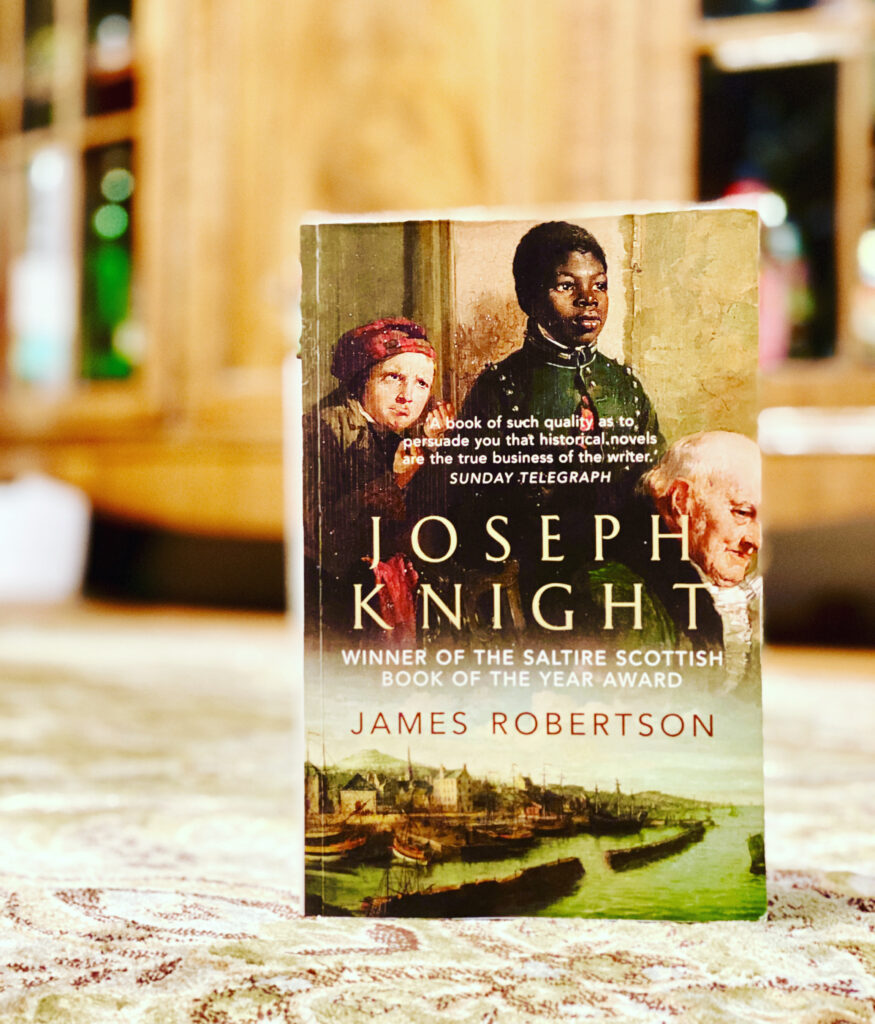
Historical fiction. About slavery and Scotland. Built around the actual historical case that led in 1777 to the establishment of the principle that Scots law did not uphold slavery, at least domestically. Joseph Knight is the enslaved man at the centre of this case, originally kidnapped from west Africa and brought to Jamaica, and then Scotland. The book, however, mostly follows the perspectives of the member of the Scottish gentry (and plantation owner) to whom Knight was enslaved, those around him, and other participants in the case. It switches between two timelines, one at the end of the rich man’s life, when he is wrapping up his affairs and has hired the 19th century equivalent of a private investigator to find Knight, who had not been seen since the legal victory that freed him decades before, and one starting from his youthful participation on the losing side of the Battle of Culloden in 1746, through his time in Jamaica, his return to Scotland with Knight, and the climactic court case.
A concern that jumps off the page fairly early on is that this is a book about slavery written by a white Scottish author, following almost entirely white Scottish characters. I’d be interested in the perspective of Black Scottish reviewers on this point, of course, but this seems to largely be an attempt to explore (white) Scottish complicity, and my own sense is that it more or less succeeds as an intervention directed at slavery’s (latter-day, often indirect) beneficiaries to unsettle inherited myths of innocence and virtue. On the one hand, there are rousing and self-congratulatory words about liberty spouted by anti-slavery lawyers connected with the court case, but the book as a whole presents quite clearly the inherent brutality of slavery and the ways in which Scotland profoundly benefited from it before this case was decided and long after (i.e. to this day). I also appreciated the way that it makes clear that Blackness is nothing new in Scotland or in the UK as a whole – the plantation-owning baronet asks his PI how hard can it really be to find a Black man in early 19th century Scotland, and the PI points out that, in fact, there are more Black people in the country, particularly in the Glasgow area, than his employer presumes, and many more than that to the south in the biggest English cities. In a somewhat more understated way, it also demonstrates how the turn to colonization and slavery, and being awarded a share of the spoils of empire by London, was central to Scotland moving forward from the confessional and dynastic divisions that had their bloody climax at Culloden. So I would certainly suggest this not be the sum total of anyone’s learning about slavery and Scotland, but it is a useful contribution.
The writing was good, and the storytelling was a slow and low-key sort that I associate (perhaps unfairly?) with historical fiction – it certainly worked here. I would say the pacing of the book was a little off in the second half, which could have been tightened up and told just as effectively in fewer pages. But, on the other hand, I didn’t mind, because at least some of what might be considered extra was spent immersed in middle-class Edinburgh through the lawyers who took up the case and various famous people with whom they interacted – there is one branch of my family that I know goes back to middle-class Edinburgh (albeit a much less august layer than its representatives in this book) in at least the early 19th century and perhaps earlier, so I appreciated getting this glimpse of that world in the mid-to-late 18th century. I also enjoyed that much of the dialogue is written in Scots. Definitely would recommend.
Joseph Knight
Originally posted by Scott on Goodreads.